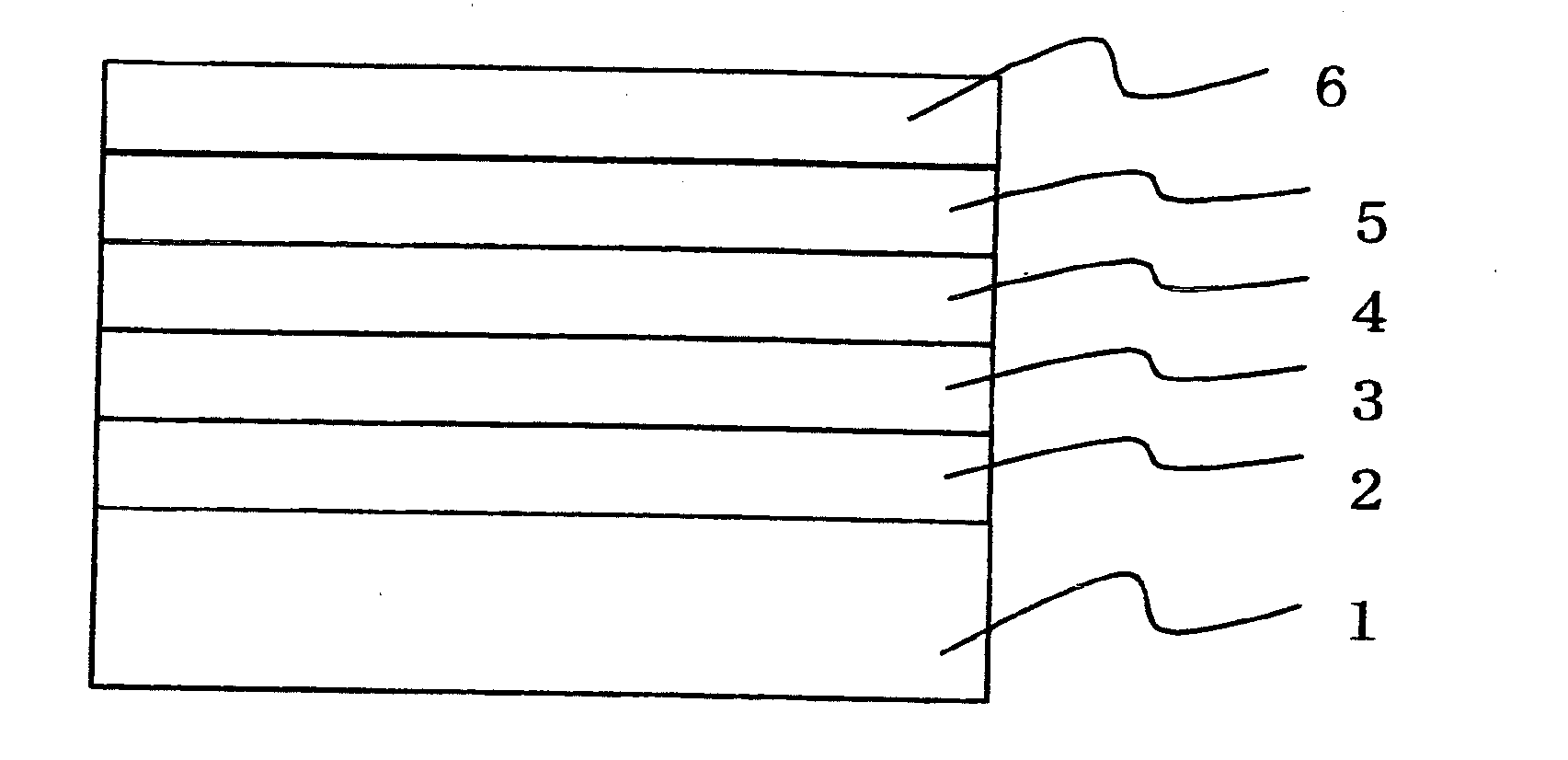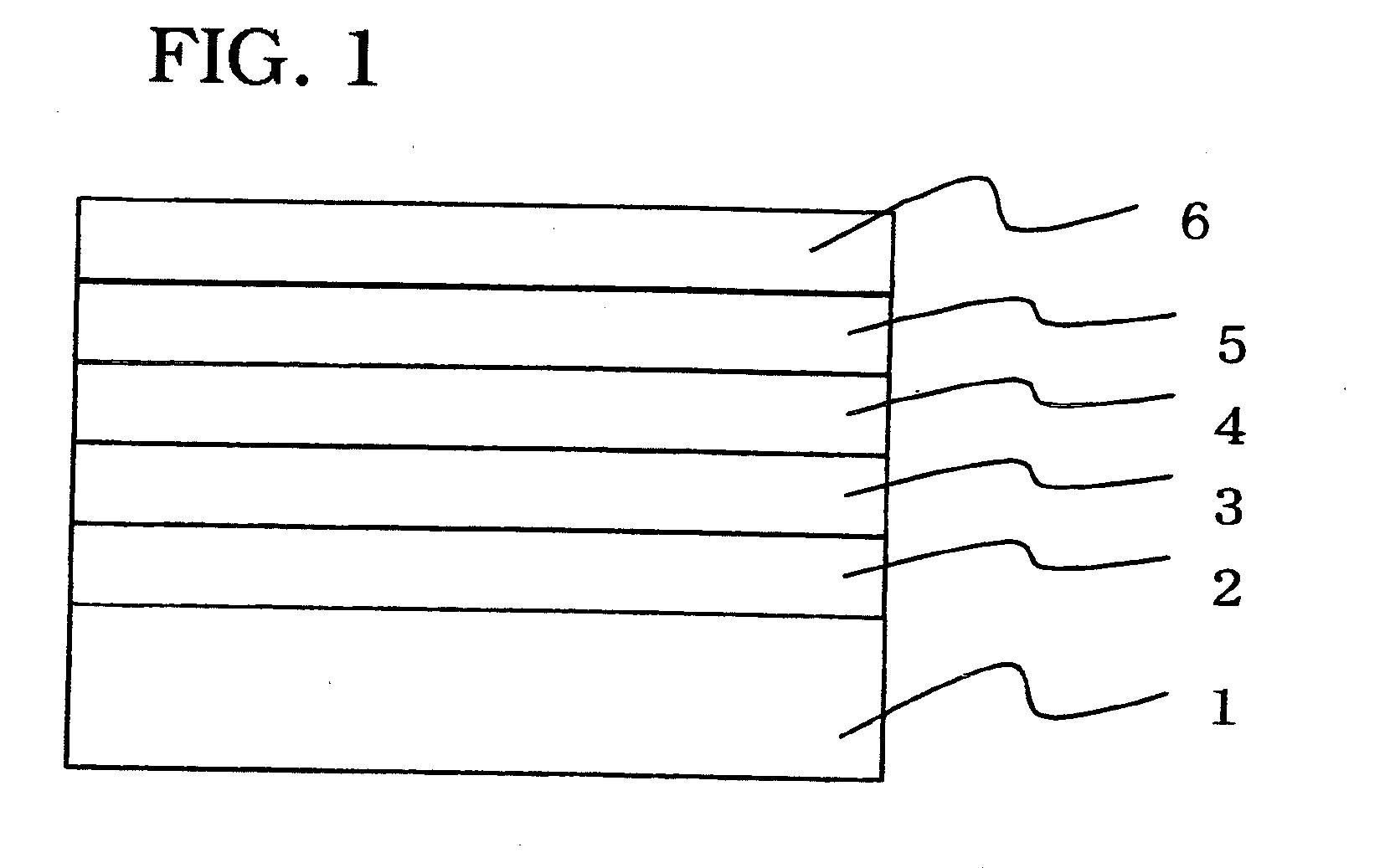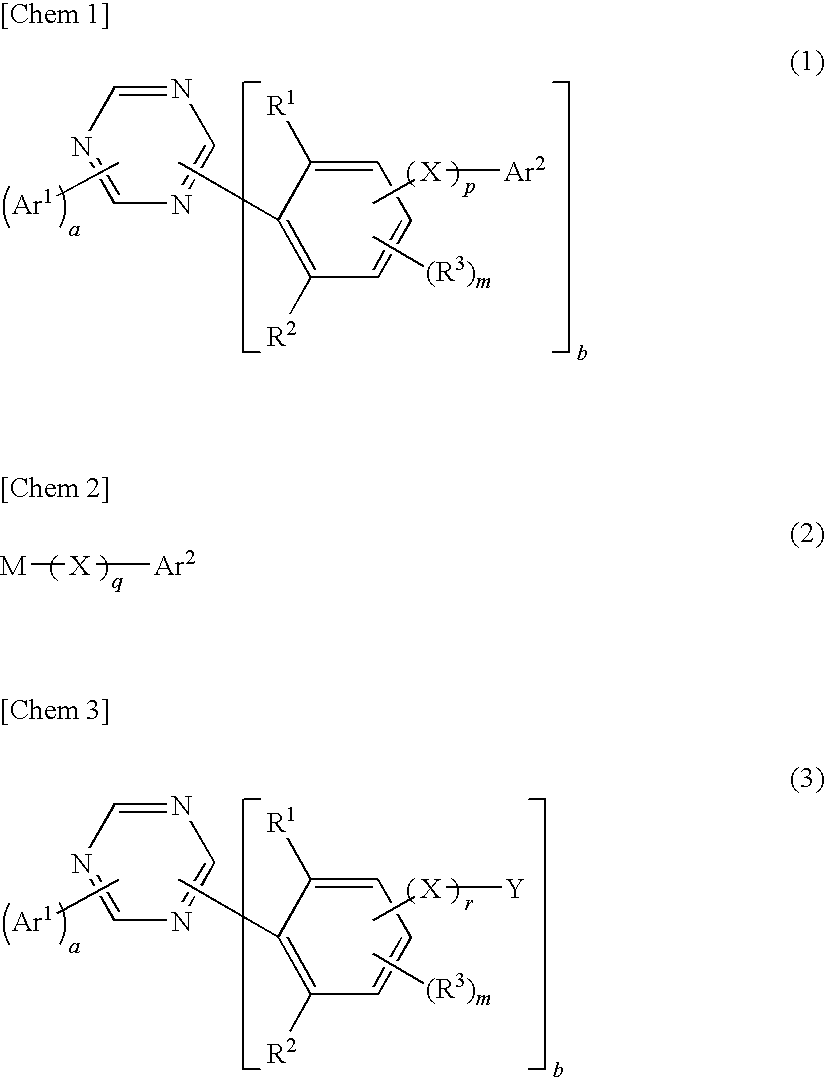1,3,5-triazine derivative, production method thereof and organic electroluminescence device comprising this as a composing component
- Summary
- Abstract
- Description
- Claims
- Application Information
AI Technical Summary
Benefits of technology
Problems solved by technology
Method used
Image
Examples
reference example 1
Synthesis of 2-(4-bromophenyl)-4,6-bis(4-tert-butylphenyl)-1,3,5-triazine
[0122]A 6.58 g portion of 4-bromobenzoyl chloride and 9.55 g of 4-tert-butylbenzonitrile were dissolved in 200 mL of chloroform, and 8.97 g of antimony pentachloride was added dropwise thereto at 0° C. The mixture was stirred at room temperature for 1 hour and then refluxed for 8 hours. After cooling to room temperature, chloroform was evaporated under a reduced pressure. When the thus obtained 2-(4-bromophenyl)-4,6-bis(4-tert-butylphenyl)-1,3,5-oxadiazinyl-1-ium hexachloroantimonate was gradually added to 300 ml of 28% aqueous ammonia at 0° C., white precipitate was formed. This was stirred at room temperature for 1 hour and filtered, and then the thus obtained white precipitate was washed with water and methanol. The white precipitate was dried and then dissolved by adding to dimethylformamide heated to 153° C., followed by filtration. The operation to add the insoluble component separated by filtration to di...
reference example 2
Synthesis of 2-(4-bromophenyl)-4,6-di-m-tolyl-1,3,5-triazine
[0125]An 8.78 g portion of 4-bromobenzoyl chloride and 9.37 g of 3-methylbenzonitrile were dissolved in 120 ml of chloroform, and 11.96 g of antimony pentachloride was added dropwise thereto at 0° C. The mixture was stirred at room temperature for 30 minutes and then refluxed for 16 hours. After cooling to room temperature, this was filtered under argon. The thus obtained antimony hexachloride salt of oxadiazinium was washed with dichloromethane and dried under a reduced pressure. When the oxadiazinium salt was gradually added to 400 ml of 28% aqueous ammonia at 0° C., white precipitate was formed. This was stirred at room temperature for 1 hour and filtered, and then the thus obtained white precipitate was washed with water and methanol. The white precipitate was dried and then dissolved by adding to boiling dimethylformamide, followed by filtration. The operation to add the insoluble component separated by filtration to b...
reference example 3
Synthesis of 2,4-bis(4-biphenylyl)-6-(4-bromophenyl)-1,3,5-triazine
[0128]A 4.39 g portion of 4-bromobenzoyl chloride and 7.17 g of 4-biphenylcarbonitrile were dissolved in 40 ml of chloroform, and 5.98 g of antimony pentachloride was added dropwise thereto at 0° C. The mixture was stirred at room temperature for 10 minutes and then refluxed for 13 hours. After cooling to room temperature, chloroform was evaporated under a reduced pressure. When the thus obtained 2,4-bis(4-biphenylyl)-6-(4-bromophenyl)-1,3,5-oxadiazinyl-1-ium hexachloroantimonate was gradually added to 300 ml of 28% aqueous ammonia at 0° C., white precipitate was formed. This was stirred at room temperature for 1 hour and filtered, and then the thus obtained white precipitate was washed with water and methanol. After drying the white precipitate, 150 ml of chloroform was added thereto, and this suspension was stirred under heating reflux and filtered. The operation to add 50 ml of chloroform to the insoluble componen...
PUM
 Login to View More
Login to View More Abstract
Description
Claims
Application Information
 Login to View More
Login to View More - R&D
- Intellectual Property
- Life Sciences
- Materials
- Tech Scout
- Unparalleled Data Quality
- Higher Quality Content
- 60% Fewer Hallucinations
Browse by: Latest US Patents, China's latest patents, Technical Efficacy Thesaurus, Application Domain, Technology Topic, Popular Technical Reports.
© 2025 PatSnap. All rights reserved.Legal|Privacy policy|Modern Slavery Act Transparency Statement|Sitemap|About US| Contact US: help@patsnap.com



